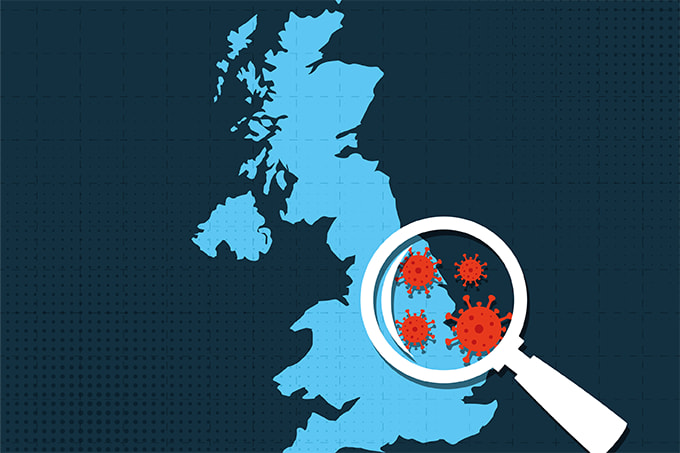
How did you get started in pathology?
At Guy’s and St. Thomas’ Hospital, we had an amazing one-block pathology course of three or four months. It was a highlight of the whole five years, not just for me, but for everybody. All of the lectures were good, it was very interactive, and there was a lot of small-group teaching – and that introduction to pathology got me interested.
When I left medical school, there were no training opportunities in pathology – so I did a surgery rotation instead. By the time I finished that, there were no jobs available in surgery – so I went back to pathology!
What was it like to become President of the Royal College of Pathologists during a pandemic?
It’s a bit like being handed a ship in the middle of a storm. I was lucky to have an excellent crew in both the College staff and the Vice-Presidents who were appointed at the same time as I was. It’s a difficult time with unique challenges, but the College is capable of handling it – and I’m not on my own in the storm.
At the beginning of the pandemic, all routine work around the country stopped and we focused exclusively on COVID-19 because it was new and we had no systems in place to deal with it. Our priority was to develop and roll out testing – that’s how we were able to prevent the National Health Service from being overwhelmed. As cases decreased over the summer, we resumed our routine work – and now, even after facing a resurgence, we’ve maintained near-normal levels of routine pathology work. That’s not to say that there isn’t a significant backlog of cases; there is, and addressing that alongside our usual workload is currently our top priority.
As a senior figure in pathology in general, what are your goals for the discipline?
I think the big issue for pathology is that we’re often forgotten. The fundamental thing we need to do is highlight that pathology is important and that it needs to be supported because, without pathology, you don’t have a diagnosis. And that’s not all; whereas some disciplines – for instance, histopathology – play a leading role in diagnosis, others – such as clinical chemistry or hematology – may have an equal or even greater role in treatment selection and support. Every aspect of our discipline needs to be remembered and supported. We need to increase our visibility so that policymakers realize they need to build pathology and laboratory medicine into their plans.
Where do you see pathology in 10 years’ time?
Everything will look different.
There will be increased automation and digitization. I suspect histopathology labs will be mainly digital – and digital images will be used in other areas as well. There’s already a huge amount of automation in pathology, but I think there will be even more in the future. That will increase capacity; labs that do 3,000 cases a day now might do 7,000 in 10 years’ time. Those will be the big things.
Genomics, precision medicine, and artificial intelligence (AI) are playing an increasingly large role. If you compare the laboratories of today to the laboratories of a decade from now, I don’t think you’ll see a massive difference – but if you read a report from 10 years in the future, I think it will be more complex. It will have more genomics content and be more strongly supported by AI technologies. Those technologies won’t replace pathologists, but they will certainly assist us.
Genomics, in particular, is an area of significant importance. Two patients may have the same illness, but the best treatment options for them may differ widely – and the only way to find that out is through genomics testing. I don’t think we’ll reach a stage where we biopsy a tumor, put the sample in a machine, and it spits out a treatment. History shows us that our clinical colleagues like what they have, but welcome “a little bit extra.” They’ll still want to know the tumor size, how far it has invaded, the histology, and so on – but they’ll want to know the genomics as well, so that they can offer the patient the best possible treatment options.
Our main obstacle right now is logistical. The science of genomics is fantastic. Oncologists, surgeons, and pathologists are very good at obtaining, testing, and interpreting findings – but, in many areas, genomics is still separate from the main laboratory, which means you might encounter problems in getting the samples to genomics and the results back. Our key focus at the moment is speeding that process up so that we can get results into patients’ files as quickly and accurately as possible.
If you could give one piece of advice to pathologists and lab medicine professionals at the start of their careers, what would you say?
Take all the opportunities that present themselves to you. Your career will develop in ways you might not have anticipated, but that you will enjoy. Be enthusiastic about your specialty. And be reliable.




